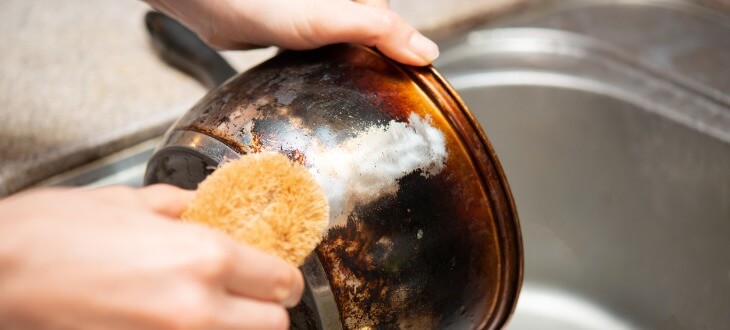A common question we get here at Tampa Steel & Supply is, does stainless steel rust? The short answer is yes. However, there are precautions you can take in order to prevent rust from getting on your surfaces.
This article will outline in more depth how stainless steel rusts, the main factors in stainless steel rusting, the types of corrosion, and how to prevent rust in the future.
Can stainless steel rust?
The short answer is yes, stainless steel can rust. However, it will not rust as quickly as other types of metals.
Exposure to different types of chemicals, grease, moisture, or heat for prolonged periods of time can make your stainless steel rust. When possible, try to keep your stainless steel protected from these elements in order to maintain it for as long as possible.
Additionally, many types of corrosion can play a role, as covered later in this article.
Factors Affecting Rust on Stainless Steel
Various factors affect the rusting of stainless steel. Firstly, the weather can play a huge role when it comes to rust on your stainless steel. The elements, such as rain or snow, can play a major part and lead to the early onset of rust.
The next factor you should consider is the environment your stainless steel is in. For example, if you have stainless steel by a body of water the conditions here may be more prone to corrosion. This is because salty water is a catalyst for rust.
Lastly, completing maintenance on your stainless steel objects may impact whether or not and how much they will rust. Maintaining a proper maintenance schedule should help prevent and slow rust down.
Types of Corrosion for Stainless Steel
Corrosion can be both dangerous and expensive. Corrosion is when a refined metal is converted to a different form such as its oxide, hydroxide, or sulfide state — leading to deterioration of the material.
Many types of corrosion can occur to your stainless steel. These include:
- General Corrosion: This type of corrosion is a loss of metal over the entire surface of your stainless steel. If your steel has a pH less than 1, it is more prone to this type of corrosion.
- Galvanic Corrosion: This is where one metal corrodes more favorably than another when exposed to electrolytes.
- Intergranular Corrosion: When exposed to 842-1562 degrees Fahrenheit, boundaries are more likely to corrode due to the excess heat.
- Putting Corrosion: This type of corrosion results in cavities or holes. This is when stainless steel is exposed to chlorides.
- Crevice Corrosion: Crevice corrosion happens when two joining surfaces are formed between two metals and non-metals.
How to Prevent Rust on Stainless Steel
There are several ways to prevent rust on stainless steel. First, you should always use stainless steel pads or soft clothes in your maintenance efforts. In doing so you won’t damage or scratch your stainless steel.
Next, you’ll want to clean with the grain. Be sure to scrub parallel to the lines when they are present. If lines are not present, you should use a microfiber cloth or something similar to clean.
Additionally, you should use alkaline or non-chloride based cleaners. This is because cleaners containing salts will cause your stainless steel to rust. Additionally, you should never use hydrochloric acid on stainless steel as it will ruin it.
Lastly, always rinse and wipe down your surfaces after use — wiping off any excess water and cleaning products.
Visit Tampa Steel & Supply for Quality Metal and Metal Processing Services
Do you need help with woodworking or metalworking? The experienced professionals at Tampa Steel and Supply are here to help. We provide the highest quality of services to our customers.
Request a Quote Online
Or Call Tampa Steel & Supply at (813) 241-2801

